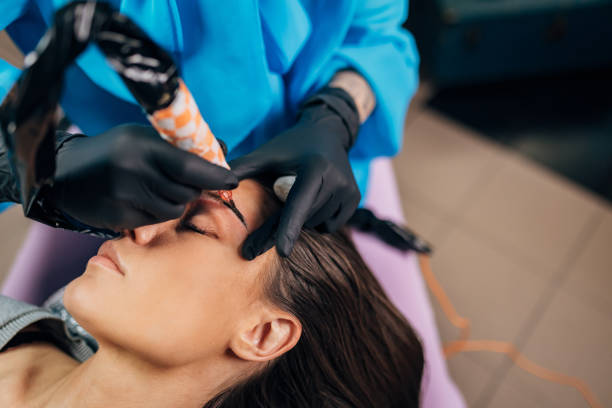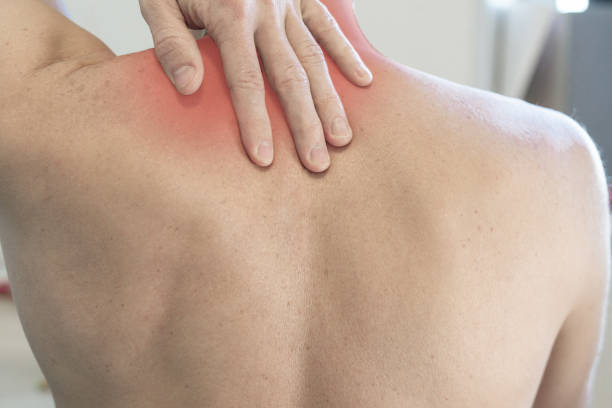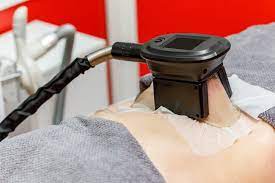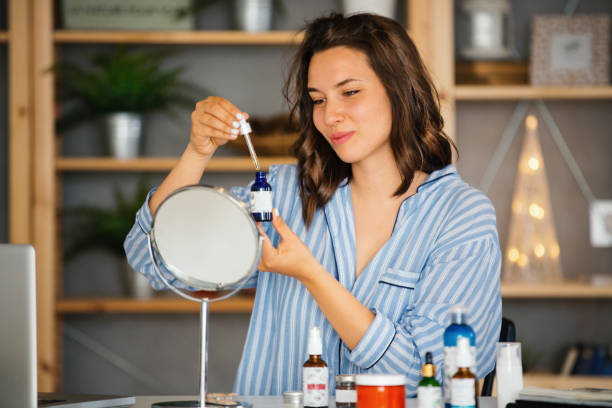What’s it? Skin pigment is made by melanocytes, a particular type of skin cell. Melanin’s pigment is responsible for the color of our skin, eyes, and hair. It also acts as a natural sunscreen. This is why you get tanned in summer. Excessive production of melanin is what causes hyperpigmentation. Sun damage and inflammation are the most common causes. However, certain hormones and medications can also trigger hyperpigmentation. Age spots can be caused by sun damage, but contraceptives and pregnancy can also trigger this condition.
What causes it? Over time, accumulated oxidative stresses lead to damaged pigment cells. They can still function but produce excessive pigment. If the pigment is visible on the skin’s surface, it could indicate more problems beneath your skin. This is why I use the most up-to-date skin diagnostic equipment. It makes pigment visible using technology.
How can I prevent it from happening? You can prevent pigmentation by using products that inhibit tyrosinase (an enzyme that regulates melanin production). It is important to preserve the skin’s integrity and avoid excessively peeling to prevent pigmentation. Peeling can cause skin irritation and increase skin sensitivity. An impaired skin can show inflammation, leading to increased aging and more age spots. Corneotherapy is the basis of my product and treatment philosophy. This science is about maintaining and improving the skin’s barrier function to prevent hyperpigmentation and premature aging.
Cover up with sunscreen. Avoid exposing too much skin. Wear a wide-brimmed hat, large sunglasses and large sunglasses to protect your skin from the harmful rays of sunlight. Lower risk of developing pigmentation is associated with less direct sunlight exposure.
What ingredients can be used to treat this condition? There are no simple solutions to this condition. First, prevent further pigmentation and repair damaged skin barriers. An impaired skin barrier shows diffuse redness. This condition requires immediate attention. Hyperpigmentation treatments will not work if this happens.
Ingredients that inhibit excessive pigment production are what I recommend. They act as melanin suppressors and help to break down existing melanin. Vitamin A, Green Tea, and Vitamin E are just a few examples. Another key factor is a delivery system that allows active ingredients to penetrate the skin. I choose liposomes or nanoparticles, which have proven effective in this regard.
Avoid? Avoid products containing fragrances or essential oils. They can trigger excessive pigment and are photosensitizers. Use perfume only on your hair, not on your skin.
Avoid DIY suggestions we see in magazines and on Facebook, such as lemon juice or apple cider vinegar. These do not affect melanin production since water-soluble substances cannot penetrate the skin’s surface. These acids have a slight peeling effect, which is not good for hyperpigmentation.




